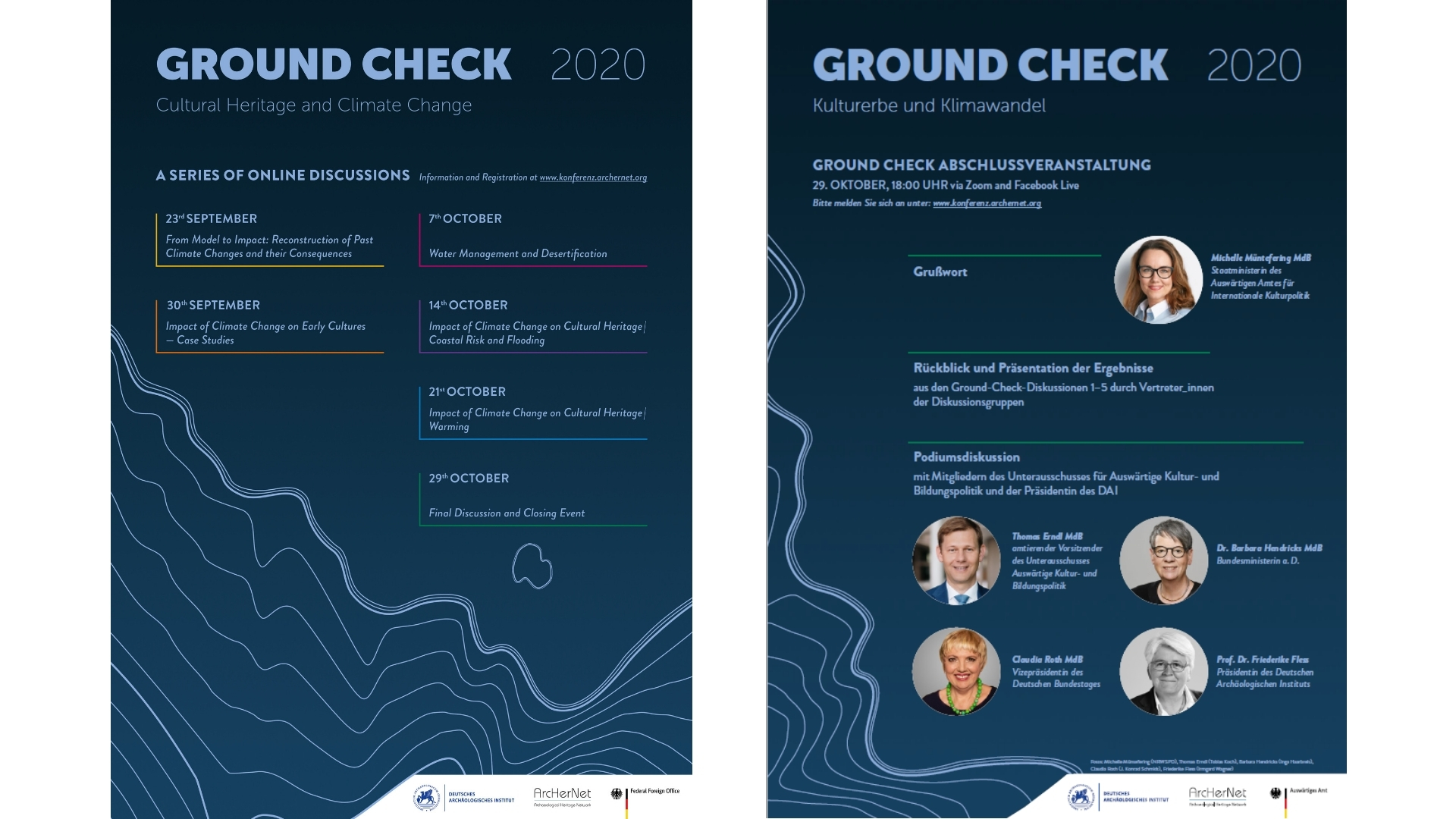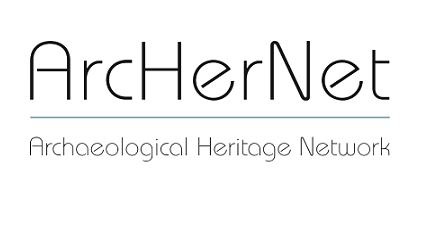Zur Anmeldung folgen Sie bitte dem jeweiligen Link im Programm.
Opening Event
Modern archaeology examines all facets of human life. This also includes the effects of climate changes on the environmental conditions in which people lived in the past, and which they also influenced. After an introduction by Friederike Fless, president of the German Archaeological Institute, experts from the Free University Berlin, Kiel University, Römisch-Germanisches Zentralmuseum and the German Archaeological Institute open the discussion about climate changes and their impact on past societies.
Opening and Introduction: Professor Friederike Fless (German Archaeological Institute)
Panelists:
Professor Hans-Rudolf Bork (Kiel University)
Dr Michèle Dinies (Free University Berlin)
Professor Detlef Gronenborn (Römisch-Germanisches Zentralmuseum)
Professor Pavel Tarasov (Free University Berlin)
Moderated by Volkart Wildermuth
On the basis of several examples from East Asia, Western Africa and Anatolia Dr Andrea Kay (Max Planck Institute), Professor Mayke Wagner, Dr Jörg Linstädter and Dr Lee Clare (all German Archaeological Institute) continue the discussion of how changes of nature and environment effected the lived reality of past communities and how their reaction can be reconstructed.
Panelists:
Dr Lee Clare (German Archaeological Institute)
Dr Andrea Kay (Max Planck Institute for the Science of Human History)
Dr Jörg Linstädter (German Archaeological Institute)
Professor Mayke Wagner (German Archaeological Institute)
Moderated by Volkart Wildermuth
How did people of the past develop coping mechanisms and water management strategies for living in drylands and deserts? The panelists will debate innovative adaptation strategies to tackle the challenges of frequent water scarcity from prehistory to the present.
Panelists:
Dr Arnulf Hausleiter (German Archaeological Institute)
Dr. Bernd Müller-Neuhof (German Archaeological Institute)
Professor Michael Rohde (Prussian Palaces and Gardens Foundation)
Professor Brigitta Schütt (Free University Berlin)
Moderated by Volkart Wildermuth
Not only do archaeologists in cooperation with other disciplines research the effects of climate changes and their impact on the human environment, but archaeology and cultural heritage are also endangered themselves by current climate change. Global warming and the rise in sea level affect not only the distant Pacific islands and their cultural heritage, but also the coasts of Europe. Four international experts discuss calculations, scenarios and solutions regarding the threat to heritage sites by rising sea levels and flooding.
Panelists:
Dr David Harkin (Historic Environment Scotland)
Lena Reimann (Kiel University)
Professor Nassos Vafeidis (Kiel University)
Professor Burkhard Vogt (German Archaeological Institute)
Moderated by Volkart Wildermuth
Global warming with its very different local effects also entails a wide range of threats to the cultural heritage of the past. In this discussion the panelists provide insights into how climatic fluctuations affected the equilibrium of human-environment systems in arctic and sub-arctic regions and how thawing permafrost threatens archaeological sites and the cultural heritage of descendant communities.
Panelists:
Professor Martin Callanan (Norwegian University of Science and Technology)
Dr Anne Jensen (University of Alaska Fairbanks)
Professor Henny Piezonka (Kiel University)
Dr Sabine Reinhold (German Archaeological Institute)
Moderated by Volkart Wildermuth
Final Discussion and Closing Event
Archaeology provides high-resolution data on local and regional effects of climate changes in a long-term perspective. These climate changes did not affect people to the same degree everywhere. In the area of cultural preservation we face growing challenges that result from the effects of climate change and that can only be solved in an interdisciplinary manner, jointly and in networks. In the closing event key findings from the previous discussions will be presented, providing a result of the discussion series in an interdisciplinary manner and with an international perspective. The topics Climate Change and Cultural Heritage will then be discussed in an alternating perspective between politic and science.
- Greeting Michelle Müntefering MdB, Federal Foreign Office Minister of State for
International Cultural Policy
- Review and presentation of findings of Ground Check Discussion 1-5 by representatives
of the discussion groups
- Paneldiscussion with Members of the Subcommittee on Foreign Cultural and Education
Policy and the President of the DAI with: Thomas Erndl MdB (acting chairman oft he
Subcommittee on Foreign Cultural and Education Policy), Dr Barbara Hendricks MdB
(former Federal Minister) Claudia Roth MdB, (Vice-President oft he German Bundestag)
and Professor Friederike Fless (President of the German Archaeological Institute)
Die Arbeitssprache der Konferenz wird Englisch sein.

